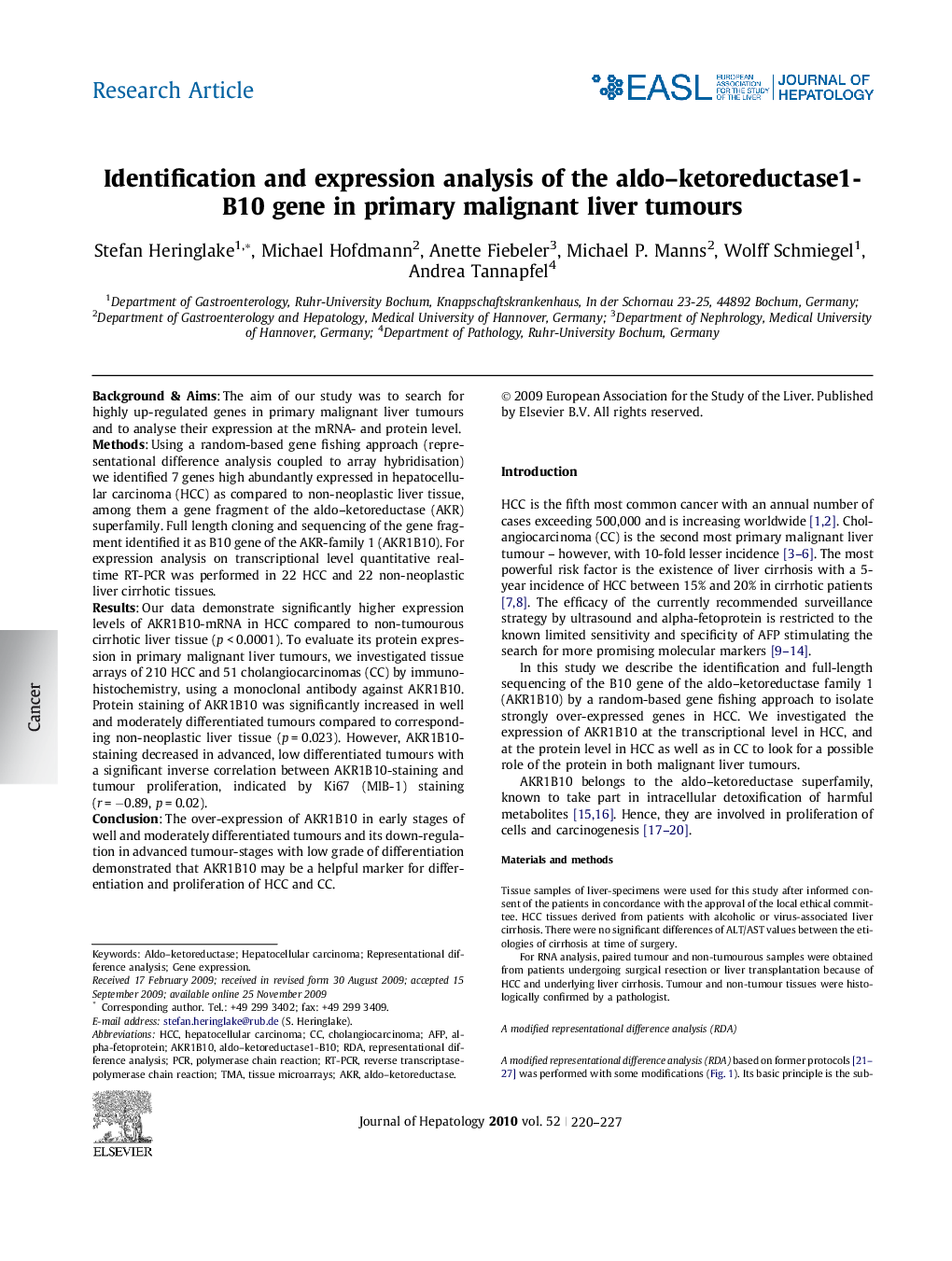| Article ID | Journal | Published Year | Pages | File Type |
|---|---|---|---|---|
| 6109780 | Journal of Hepatology | 2010 | 8 Pages |
Background & AimsThe aim of our study was to search for highly up-regulated genes in primary malignant liver tumours and to analyse their expression at the mRNA- and protein level.MethodsUsing a random-based gene fishing approach (representational difference analysis coupled to array hybridisation) we identified 7 genes high abundantly expressed in hepatocellular carcinoma (HCC) as compared to non-neoplastic liver tissue, among them a gene fragment of the aldo-ketoreductase (AKR) superfamily. Full length cloning and sequencing of the gene fragment identified it as B10 gene of the AKR-family 1 (AKR1B10). For expression analysis on transcriptional level quantitative real-time RT-PCR was performed in 22 HCC and 22 non-neoplastic liver cirrhotic tissues.ResultsOur data demonstrate significantly higher expression levels of AKR1B10-mRNA in HCC compared to non-tumourous cirrhotic liver tissue (p < 0.0001). To evaluate its protein expression in primary malignant liver tumours, we investigated tissue arrays of 210 HCC and 51 cholangiocarcinomas (CC) by immunohistochemistry, using a monoclonal antibody against AKR1B10. Protein staining of AKR1B10 was significantly increased in well and moderately differentiated tumours compared to corresponding non-neoplastic liver tissue (p = 0.023). However, AKR1B10-staining decreased in advanced, low differentiated tumours with a significant inverse correlation between AKR1B10-staining and tumour proliferation, indicated by Ki67 (MIB-1) staining (r = â0.89, p = 0.02).ConclusionThe over-expression of AKR1B10 in early stages of well and moderately differentiated tumours and its down-regulation in advanced tumour-stages with low grade of differentiation demonstrated that AKR1B10 may be a helpful marker for differentiation and proliferation of HCC and CC.
